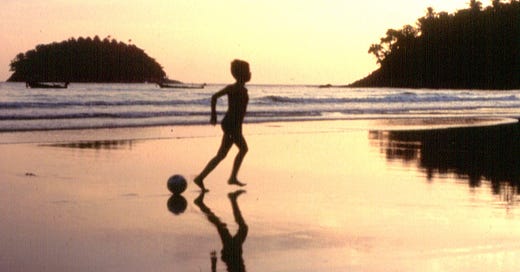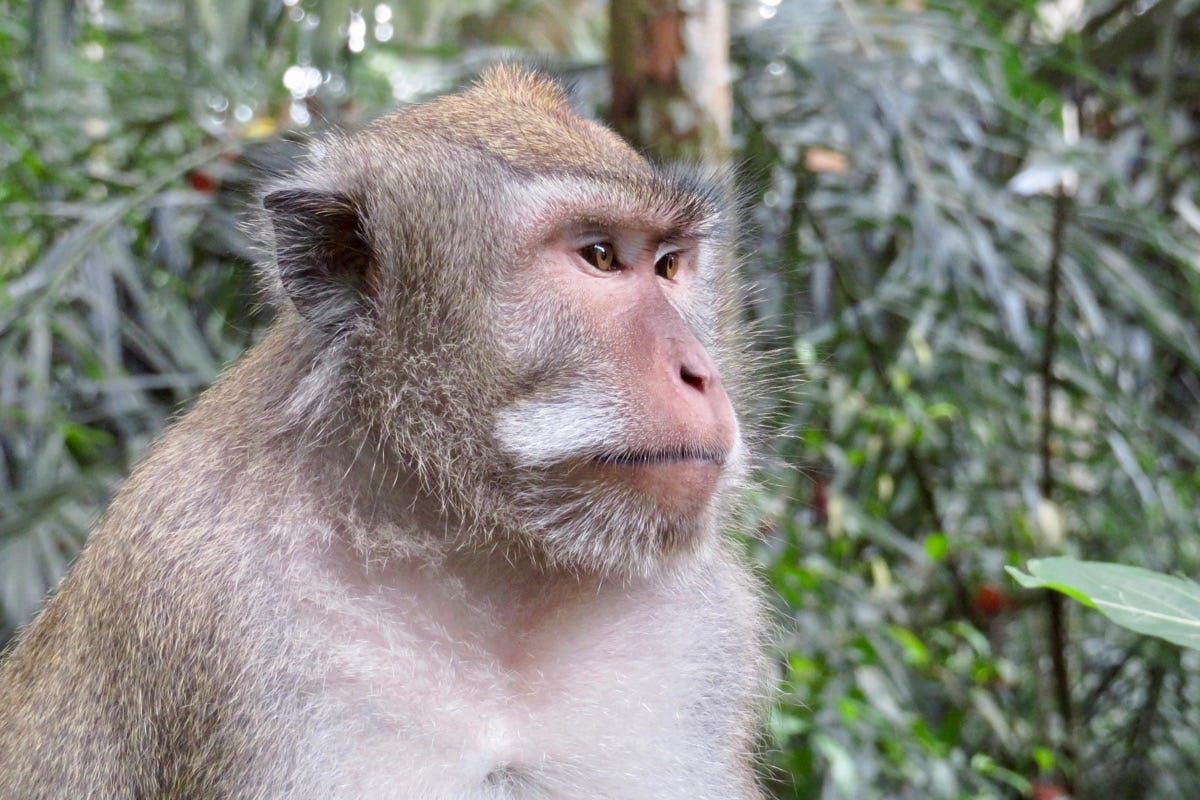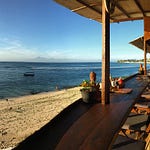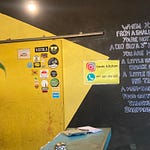When you’re travelling at the budget end of the stick, it isn’t unusual to hear what is going on in the next room. You’ve seen The Beach right?
This isn’t restricted to cheap dorm rooms and thatch beach bungalows though. My favourite story came to me second hand from some good friends staying at a luxurious hotel in Phuket. Their neighbour was a European and one evening they returned to their room with a drink on the veranda in mind. The racket from next door was unmistakable though, and it gave them pause.
Phuket’s Kata. Circa 1993. Photo: Stuart McDonald.
Sitting on their lounge, they listened to the, dare I say, banging noise. There was a voiceover too, it repeated ... in rhythm.
Him: “I love you big time baby.”
Her: “No way fat man.”
Love is a beautiful thing isn’t it?
To be fair, I’m not meaning to pick on Europeans here. I’ve had Thais bonking in the room next to me—I just couldn’t understand what they were yelling at each other.
One of the things I love about hostels and more budget-focused beach resorts, it the social vibe. A good place becomes great when they pull this off in a seemingly effortless manner. Even if it is often anything but effortless. There’s no “Afternoon Tea” or “Meet your neighbour”, instead there’s a common area that guests naturally want to hang out in. While phones have put a dampener on this, you’re still at least going to ask a stranger for the WiFi password.
Some though, seem to struggle with borders. At what point does being social become more weird than friendly?
If it ain’t broke, don’t fix it. Haad Son, Ko Pha Ngan. Photo: Stuart McDonald.
At a bungalow joint I once loved on Ko Pha Ngan, there was an older Italian couple who had been visiting for years. So many years in fact, the owners had built them a bungalow of their own. When they were not around, the owner’s would rent it out.
The Italian couple were friendly but were also terrible drunks. Blazing rows in the early hours were common, and unpleasant for everyone. Oil lamps at a hundred yards and all that.
Another of their habits though was annoying in a different way. Given one of the bungalows was theirs, when the owners were away, they treated the resort as their own home.
You’d return from snorkelling to find them camped on your balcony, often boozing. They smoked those terrible French filterless cigarettes, and butts would be everywhere. Only after some pleading, would they move on, generally to another’s veranda.
In what parallel universe is this ok?
Just float on the surface. Haad Saikantang, Ko Pha Ngan. Photo: Stuart McDonald.
One year I returned to find them—and their bungalow—not in attendance. It had “burned down”, the owners said. Problem solved.
It is a fine line I guess. Guesthouses are forever told their place should have a homely feel. Perhaps not so much though, that people move in. It wouldn’t surprise me if I was to told the owners burnt the hut down themselves—just to make sure the Italians didn’t return.
While I’ve stayed in more places than I care to think about, I’ve never run one. I imagine when an owner throws their heart (and wallet) into a place, they’ve dreamed of what they’re trying to create. I wonder how often these dreams shape-shift when the clientele demands something else.
Surely you can forgo a beer for a few days? Kuala Terengganu. Photo: Stuart McDonald.
A simple example comes to mind. A low season visit to a homestay on the east coast of Peninsular Malaysia had the owner with my ear for hours. The patriarch of the Muslim family who owned, ran and staffed the place, his bugbear was alcohol.
The place was cute, friendly and popular (by east coast standards). He explained when they had opened, they had a strict no-alcohol rule. They didn’t sell it and you couldn’t drink it on the premises—not even in the pretty backyard garden. Guests though, as much as liked the place, also liked a drink. He saw visits cut short as they moved to another place, not far away, that not only allowed drinking, but sold beer. In the end, he did the same, but he wasn’t happy about it.
He remarked that while it was his home, it felt like theirs. I suggested he go back to his old rules—he said he’d mull it over. When I passed through the town again a few years later, the homestay had closed.
A one-off tale perhaps, but it serves as a handy microcosm for travel in general. For decades, destinations have contorted themselves to better cater to foreign visitors. Someone please tell me why there are tailor shops on Thai beaches!
No tailor shops here. Relaxing in the south of Phuket. Photo: Stuart McDonald.
Thanks to Covid, the results of these contortions lay bare. Popular towns are devoid of tourists. Street after street lined with shop after shop, shuttered or abandoned. I was in Ubud in South Bali last weekend, riding up Monkey Forest Road. Pre-Covid19 it was a thriving tourist hotspot, on Saturday though, it was more like the set for a zombie flick. Even the macaques were few and far between.
The industry talks of destinations needing to “pivot to local” to survive Covid. I agree with the sentiment, but it would be fair to say many destinations scorned local tourists in the past. Their “more lucrative” foreign relatives were the desirable catch.
Who knows when those foreign wallets will return. Meanwhile, there are increasing calls from activists and academics who see now as an ideal time for some to eat humble pie.
It might seem like a long bow to go from noisy sex to the ravages of Covid, but I think there’s a connection. Like the Italians and those desiring beer, these are all examples of a lack of awareness of the surroundings. Or, to put it another way, a desire to change a destination into what they want—rather than what it is.
Covid touches all. Ubud. Photo: Sally Arnold.
Change is of course inevitable, and with it come pros and cons. It would be manifestly unfair to say foreign tourists are responsible for all change—they’re not. That said, if you go to a town that was never on the foreign tourist radar, it will have changed, but not in the same way. Today, in the throes of Covid, life there will feel “more normal”.
No doubt it is a painful stumble, this pivot to local thing. Some will not pull it off. I hope though when travel does begin to trickle back, a focus on local will add resilience going forward.
When it comes to foreigners and locals, it need not be an either-or. Places should not take the approach the islanders did with the Italians and just burn it down. It does though make sense to take advantage of this prolonged pause. Why? To think about why people visited in the first place.
How do places get back to there?
Couchfish is 100 percent independent and reader-supported. If you’d like to show your support, become a paying subscriber today for just US$7 per month, or simply share this story with a friend. Thank you!



















Share this post